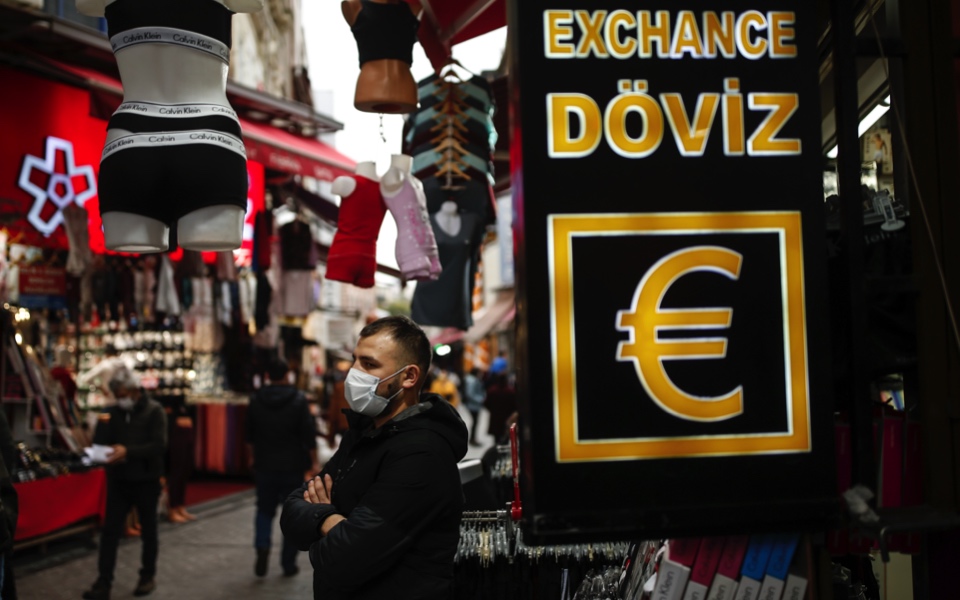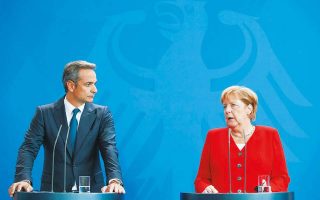Turkey’s policies will continue to exacerbate lira weakness

President Recep Tayyip Erdogan’s domestic popularity has often been linked to Turkey’s economic growth. And yet, this has looked tenuous during the Covid-19 pandemic-induced economic recession. Days ago, the president replaced his central bank governor, in part for failing to stabilise the record-low lira and has eased restrictions on currency trading. And alongside this, tensions in Turkey’s geopolitical relationships continue to flare, including in relation to drilling rights in the Eastern Mediterranean.
Clashes with Europe, and with Greece and France in particular, could exacerbate an already-volatile financial backdrop for Turkey. Weakness in the lira will likely continue to destabilise the economy, notwithstanding the new governor’s appointment, and short-term measures such as interest rate increases.
As with a number of emerging market currencies, the Turkish lira is one of the most volatile and vulnerable currencies in the world – both systemically (during periods of global risk aversion) and idiosyncratically (during domestic political turmoil, such as in the 2016 coup). The current Covid-19 pandemic crisis – and its associated economic impacts – has helped push it to a record low over the past months. It has been down by roughly 50 percent against the US dollar and 56 percent against the euro since the start of the year.
Optimism around a new central bank governor has lent support to the lira. And yet, structural lira weakness will continue in the context of the following three factors:
– Rising tensions in the Eastern Mediterranean and with Europe could hurt Turkey’s external trade. At roughly 125 trillion cubic feet, the eastern Mediterranean’s gas reserves are consequential and have triggered arguments over the region’s exclusive economic zones. The European Council has deemed Turkey’s drilling and military exercises to be illegal. This has led to discussions pertaining to accession negotiations, pre-accession funds and its position in the EU customs union. Both the EU and the US – two of Turkey’s largest trading partners – have raised the spectre for the biggest risk, trade sanctions.
Turkey’s rapidly depleting foreign currency reserves. The lira’s depreciation, and the administration’s policy to stem further weakness (including through the selling of US dollar or EUR reserves), will likely escalate financial costs for Turkey’s economy. Foreign currency reserves have declined by over 50 percent since the start of this year alone. At 36bn US dollars, as of September, reserves are likely to be even lower than this currently. The perilously low level of reserves will make it difficult for the country to meet its export and debt obligations and will perpetuate renewed cycles of local currency weakness.
– Turkey’s liquidity shortages will strain economic growth. The draw-down in its foreign currency reserves could hamper Turkey’s response to the pandemic, increasing the need for external funding. The measures taken to halt the spread of the Covid-19 disease are expected to tip its economy into its second recession in less than two years. Turkey has (unsuccessfully) held talks with the United States about possibly securing a bilateral swap line from the US Federal Reserve and continued to seek funding options to mitigate fallout from the coronavirus outbreak.
Lira weakness, strained liquidity and depleted reserves will have effects on Turkey’s real economy – these will, in turn, loop back to further currency weakness. These shocks are heightened by Turkey’s generalized policy uncertainty – as measured by Turkey’s policy mentions in the media. For most countries, economic uncertainty is roughly constant with some outlier periods. Turkey is special in this respect because it has frequent periods of politically-driven uncertainty, according to the International Monetary Fund. Its political turmoil will create more uncertainty, contributing to business decisions being put on pause, lower investment and a reduction in short-term finance in the private sector. This will fuel further financial volatility.
Phyllis Papadavid, is Research Associate of ELIAMEP and Associate Faculty in Strategy and Analytics at Columbia University.





